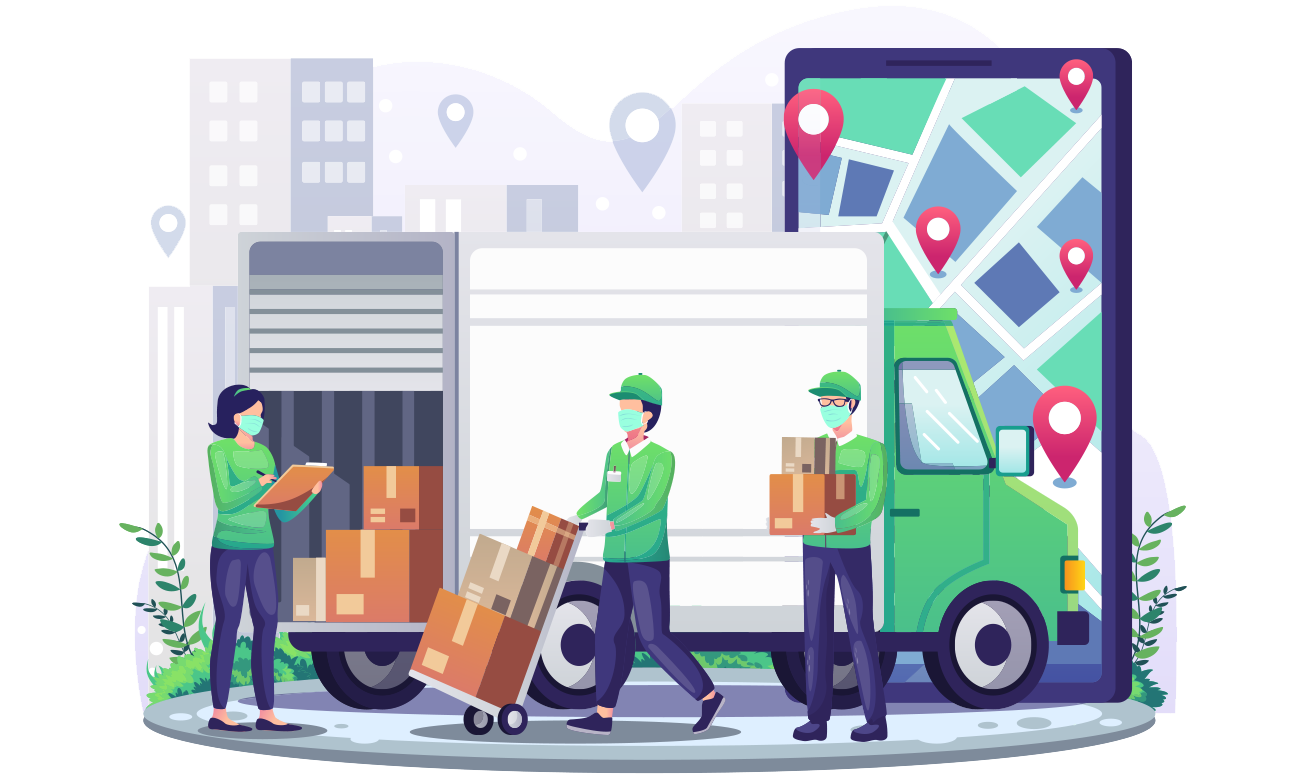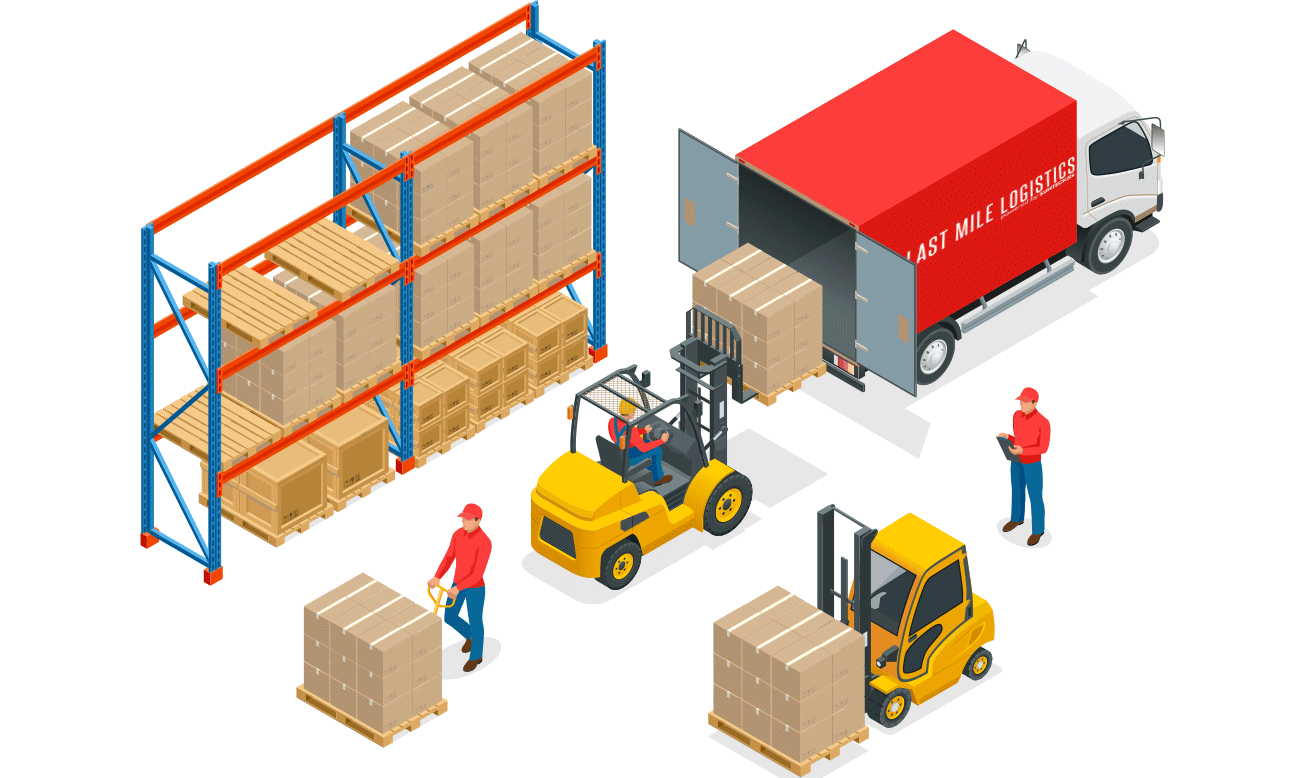January 14, 2025
FTL vs. LTL Freight: Choosing the Right Shipping Option for Your Business
When it comes to shipping goods, companies often face a critical choice: Full Truckload (FTL) or Less Than Truckload (LTL) freight services. Both shipping modes are fundamental logistics, but the right choice depends on your business needs, shipment size, and delivery priorities. Let’s explore FTL vs. LTL freight, highlighting the benefits, drawbacks, and best applications for each. By the end, you’ll know which freight option aligns with your business goals.
What Does FTL Mean?
FTL, or Full Truckload, refers to shipments that occupy the entirety of a truck’s capacity. This freight option is ideal for businesses with large quantities of goods to transport. Whether shipping numerous small pallets or a few oversized items, FTL freight offers the advantage of dedicated space and a direct route from origin to destination.
What Is LTL Shipping?
LTL, or Less Than Truckload, is designed for smaller shipments that do not require the whole truck. Instead, goods from multiple companies share the same truck, with each shipment occupying only a portion of the container. This shared approach makes LTL a cost-effective shipping mode, particularly for businesses with moderate-sized or infrequent shipments.

Benefits of FTL Freight
Full Truckload shipping provides several distinct advantages, making it a premium choice for specific scenarios:
Faster Delivery – FTL freight ensures a direct route from point A to point B, minimizing stops along the way. This streamlined approach reduces transit time, making FTL ideal for time-sensitive deliveries. Businesses that need expedited shipping will find FTL particularly valuable.
Personalized Shipping Routes – With FTL, the entire truck is dedicated to your shipment. This allows carriers to design a customized route that prioritizes your delivery, avoiding delays caused by shared stops.
Reduced Risk of Damage – Since FTL shipments involve minimal loading and unloading, your goods are less likely to be mishandled or damaged during transit. This is a significant advantage for fragile or high-value items.
Greater Flexibility – FTL freight accommodates a wide range of goods, from oversized cargo to numerous smaller pallets. The only limit is the truck’s capacity, offering businesses flexibility in shipment size and type.
Benefits of LTL Freight
Less Than Truckload shipping has its own set of advantages, making it an attractive option for smaller shipments:
Cost Savings – By sharing truck space with other businesses, LTL freight significantly lowers shipping costs. You only pay for the portion of the truck you use, making it an economical choice for smaller loads.
Accessibility for Smaller Businesses – LTL freight is ideal for businesses that do not have enough goods to justify an entire truckload. This shipping mode allows companies to access professional freight services without breaking the budget.
Special Services Availability – Many LTL carriers offer additional services, such as temperature-controlled storage, liftgate delivery, and residential drop-offs. These options can enhance the shipping experience for specific types of goods.
FTL vs. LTL Freight: Which Is Better?
The choice between FTL and LTL freight depends on your specific shipping needs:
Choose FTL Freight If:
Your shipment is large enough to fill an entire truck, requires fast delivery, or needs minimal handling of sensitive goods. FTL is also the better option for businesses that prioritize direct routes and personalized shipping.
Choose LTL Freight If:
You have a smaller shipment and a flexible delivery timeline and want to minimize costs. LTL is an excellent option for businesses shipping infrequently or with moderate-sized loads.
Pool Distribution vs. LTL Freight
Pool distribution shares similarities with LTL shipping but has key differences. While LTL freight involves sharing truck space with shipments from other businesses, pool distribution consolidates multiple orders from a single company for delivery to various distribution centers. This method reduces handling and transit times compared to traditional LTL, making it a hybrid solution for businesses looking to balance cost and efficiency.
The Cost Drawback of FTL
FTL freight’s primary disadvantage is its cost. Since the truck is exclusively dedicated to your shipment, the price reflects the premium nature of the service. However, the benefits often outweigh the expense for businesses that value speed, safety, and flexibility.

How to Decide Between FTL and LTL Freight
To choose the right shipping mode, consider the following factors:
Shipment Size – Large shipments typically justify the expense of FTL freight, while smaller loads are better suited to LTL.
Delivery Timeframe – FTL is the better option if your goods must arrive quickly. For non-urgent shipments, LTL offers a cost-effective solution.
Budget – Businesses on a tight budget may find LTL freight more appealing, while those with more resources can benefit from the premium features of FTL.
Type of Goods – Fragile or high-value items are safer in an FTL shipment, while durable goods can withstand the additional handling of LTL.
Partnering with the Right Logistics Provider
Regardless of the shipping method you choose, FTL or LTL freight, working with an experienced logistics provider can enhance your shipping operations. At Last Mile Logistics, we specialize in delivering tailored freight solutions that meet your unique needs.
Our FTL Freight Services Include:
Real-Time Tracking – Monitor your shipment’s progress 24/7.
Flexible Rates – Competitive pricing for businesses of all sizes.
Expedited Shipping – Fast, reliable delivery when you need it most.
Customized Routes – Direct shipping from origin to destination.
Our LTL Freight Services Include:
Shared Costs – Affordable pricing by sharing truck space.
Unique Handling Options – Flexible storage, liftgate delivery, and more.
Nationwide Coverage – Seamless shipping across the USA and Canada.
Choosing between FTL and LTL freight does not have to be complicated. By understanding the advantages and limitations of each shipping mode, you can make an informed decision that aligns with your business needs. Whether you prioritize speed, cost savings, or safety, a freight option is designed to meet your goals.
Ready to optimize your logistics? Contact Last Mile Logistics today for expert guidance and reliable freight services. Let us help you streamline your shipping operations and achieve success in every delivery!

